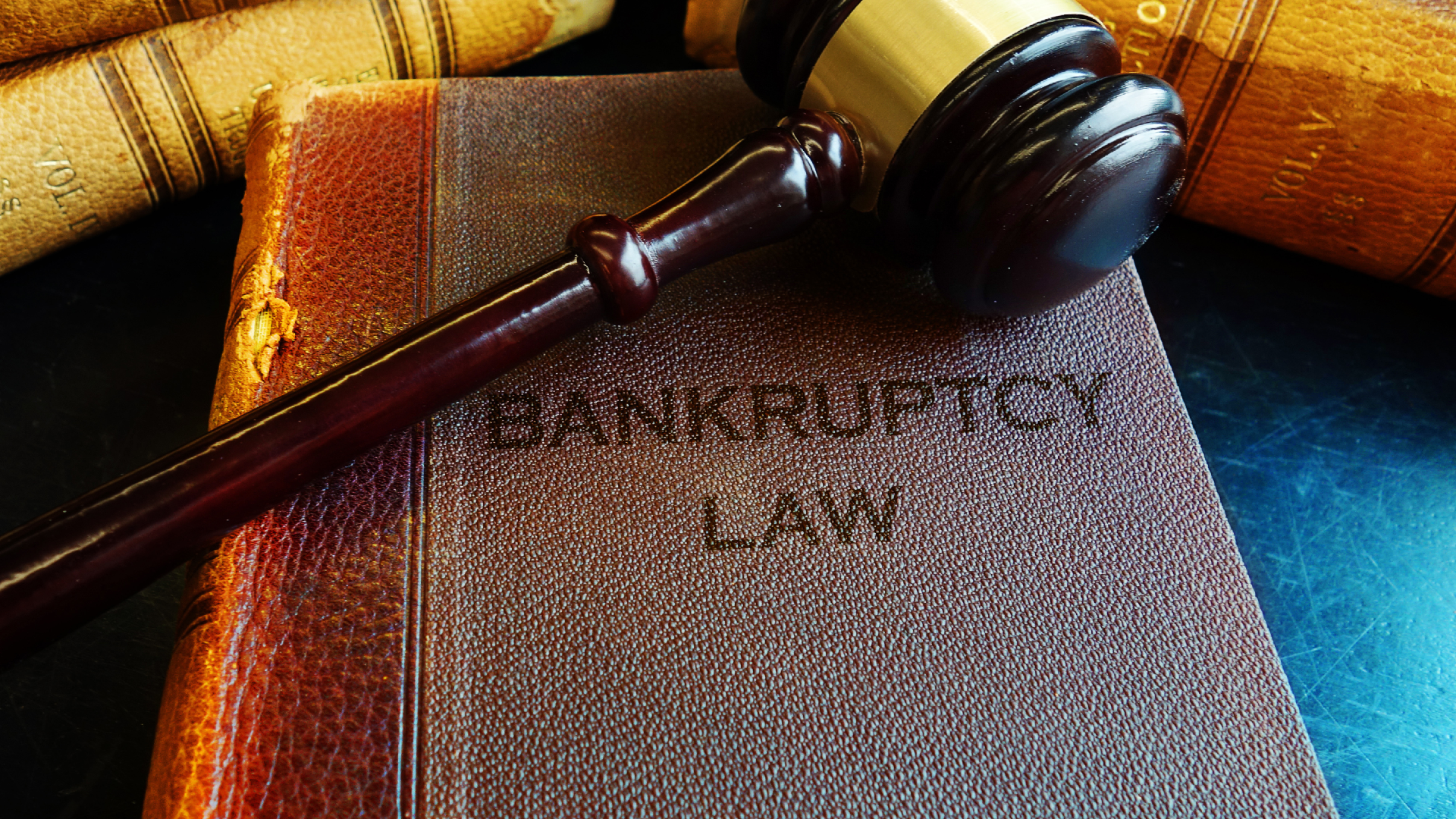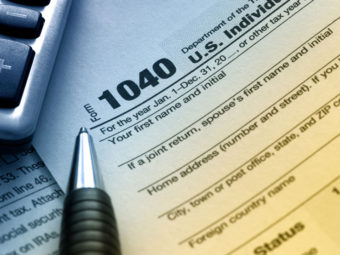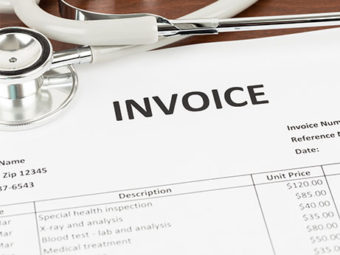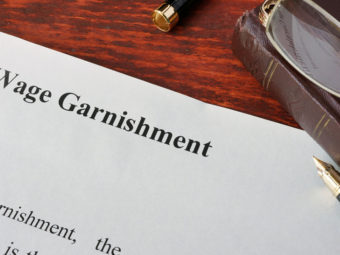Experienced Bankruptcy Attorneys Serving Dallas, Fort Worth, and More

At Leinart Law Firm, our Texas bankruptcy attorneys are committed to doing right by our clients and providing compassionate, experienced legal services you can trust. Whether you need help with debt management or you’ve been the victim of someone else’s negligence, our skilled bankruptcy attorneys in Dallas and Fort Worth are here for you.
Texas Bankruptcy Lawyers
- Our Texas Bankruptcy Lawyers Help You Get Your Finances Back on Track
- We Keep Up With Ever-Changing Texas Bankruptcy Law
- What’s the difference between Chapter 7 and Chapter 13 bankruptcy?
- What is business bankruptcy?
- Does filing bankruptcy affect my credit?
- How does divorce affect bankruptcy?
- Which debts cannot be discharged in bankruptcy?
- How much does a bankruptcy lawyer cost in Texas?
- Why choose our Texas bankruptcy attorneys?
- Contact Us to Schedule a Free Case Evaluation Today
Our Texas Bankruptcy Lawyers Help You Get Your Finances Back on Track

Financial difficulties can happen to anyone. Whether it’s due to mountains of medical bills, excessive credit card debt or job loss, there are various circumstances where people may find themselves in financial trouble. While it was once common for consumers to suffer in silence, bankruptcy is no longer taboo. It can be an effective legal tool that millions of individuals and businesses utilize to rid themselves of insurmountable debt.
Being in financial straits is serious and can impact all aspects of your life. Chapter 13 and Chapter 7 bankruptcy can enable you to keep your home, vehicle and other property. It can give you a chance to breathe and get back on your feet. However, bankruptcy is not the best solution for everyone. Depending on the circumstances, other options such as debt consolidation or having a debt relief attorney negotiate with creditors on your behalf may be more appropriate. Our experienced bankruptcy lawyers help clients with all types of debt issues, including:
Our Texas debt relief lawyers and bankruptcy attorneys take a comprehensive look at your specific financial situation and help you find solutions and options that best meet your needs. At Leinart Law, we treat each client as if they were our only client and provide the personalized, responsive service you deserve.
We Keep Up With Ever-Changing Texas Bankruptcy Law

Legislation that can impact personal and business bankruptcy is introduced practically every year. Our bankruptcy lawyers in Dallas and Fort Worth stay abreast of what’s going on in both the state and federal legislative worlds. This enables us to provide clients with up-to-date information and inform them how changes in the law may affect their bankruptcy filing. Staying current with federal and state bankruptcy law also helps us forecast potential legislation that may be signed into law in the future.
Navigating Bankruptcy Court Proceedings: A Roadmap For Understanding The Process
Embarking on bankruptcy court proceedings can be an intimidating prospect, but at Leinart Law Firm, we’re here to guide you through each step with help from our Texas bankruptcy lawyers. Understanding what to expect during the process can alleviate anxiety and empower you to make informed decisions. Let’s explore the key elements of bankruptcy court proceedings in Texas:
- Filing the Petition:
The journey begins with filing the bankruptcy petition, a formal document outlining your financial situation and the type of bankruptcy you’re pursuing (Chapter 7 or Chapter 13). This sets the legal process in motion.
- Automatic Stay Takes Effect:
Upon filing, the automatic stay comes into play, offering immediate relief from creditor actions such as foreclosure, repossession, or wage garnishment. This provides a breathing space for you to navigate the legal proceedings.
- Meeting of Creditors (341 Meeting):
Approximately 20 to 40 days after filing, you’ll attend the Meeting of Creditors. This meeting allows the trustee and creditors to ask questions about your financial affairs. While creditors rarely attend, it’s a crucial step in the process.
- Trustee’s Role in the Process:
The trustee plays a pivotal role in overseeing your case. They review your petition, conduct the 341 meeting, and ensure compliance with bankruptcy laws. In Chapter 7, the trustee may liquidate non-exempt assets, while in Chapter 13, they supervise the repayment plan.
- Credit Counseling and Financial Management Courses:
Before receiving a discharge, you must complete credit counseling and financial management courses from an approved agency. These courses are designed to provide valuable insights into budgeting and financial decision-making. Our Texas bankruptcy lawyers can fill you in more during your consultation.
- Adversary Proceedings:
If disputes or legal challenges arise, an adversary proceeding may be initiated. This is a separate lawsuit within the bankruptcy case, addressing specific issues such as fraud, nondischargeability, or objections to exemptions.
- Confirmation Hearing (Chapter 13 Only):
In Chapter 13 cases, a confirmation hearing is held to approve the proposed repayment plan. Creditors have the opportunity to object, and the court ultimately decides whether to confirm the plan.
- Discharge of Debts:
The ultimate goal of bankruptcy is debt discharge. In a Chapter 7 case, this typically occurs a few months after the Meeting of Creditors, while in Chapter 13, it happens after the successful completion of the repayment plan.
- Post-Discharge Obligations:
Even after the discharge, some obligations persist, such as secured debts, certain tax obligations, and domestic support payments. Understanding and fulfilling these obligations is crucial for a successful financial fresh start.
- Rebuilding Credit:
Post-bankruptcy, the journey to rebuilding credit begins. Responsible financial management and strategic credit-building activities can help restore your creditworthiness over time.
Texas bankruptcy lawyers from Leinart Law Firm are dedicated to simplifying this process for you. If you’re considering bankruptcy or already navigating these court proceedings, our firm is at your disposal. Let our experienced team pave the way for your financial recovery. Your journey to a debt-free future starts with us.
Bankruptcy Lawyer Infographic

Bankruptcy FAQs

What’s the difference between Chapter 7 and Chapter 13 bankruptcy?
Chapter 7 is a liquidation bankruptcy that enables you to discharge some or all of your debts. It is beneficial for those with little disposable income, and you have to pass a means test to qualify. Chapter 13 bankruptcy also allows you to discharge or reduce some debts, but you repay a portion of your debt through a repayment plan of 3-5 years. Both bankruptcy options can help stop creditors from pursuing you for payment and make your finances more manageable.
What is business bankruptcy?
Business bankruptcy occurs when a business enters into the process to legally discharge or restructure debts. Most consumers associate business bankruptcy with Chapter 11. However, depending on the way your business is structured and the type of debt, you may be able to file Chapter 7 or Chapter 13. Before filing any type of bankruptcy, it is critical to have an experienced Dallas bankruptcy lawyer evaluate your case to help you find the most practical option for your specific circumstances.
Does filing bankruptcy affect my credit?
Although filing bankruptcy initially affects your credit score, living with overwhelming debt most likely will too. Filing bankruptcy can allow you to start rebuilding your credit and learn healthy money management habits.
How does divorce affect bankruptcy?
Divorce often comes with significant financial hurdles. If both spouses are in financial straits, our Texas bankruptcy attorneys often recommend filing a joint bankruptcy before beginning divorce proceedings. Even after a divorce is finalized, creditors may attempt to pursue the non-filing spouse for repayment of certain debts. Whether you or your spouse has filed or is considering filing bankruptcy, our debt lawyers can help you understand the impact divorce and bankruptcy can have on your credit and finances.
Which debts cannot be discharged in bankruptcy?
When you file for Chapter 13 or Chapter 7 bankruptcy, the court puts an automatic stay on debts like credit card balances, utility bills, car loans and obligations related to foreclosure or eviction. However, there are certain types of debt that can’t be discharged in bankruptcy, including:
- Child support and alimony obligations and arrears
- Some student loan debt
- Certain types of tax debt
- Property liens
- Awards for personal injury or death due to a DUI
- Restitution, fines and court costs
- Fraud-related debt
It’s important to remember there may be exceptions in some cases. If you file bankruptcy without the assistance of a seasoned attorney, you might end up keeping some debt that may have been eligible for discharge. That’s why it’s helpful to have a lawyer go over all of your debts, assets and finances to help determine what may or may not be included in your bankruptcy.
How much does a bankruptcy lawyer cost in Texas?
Attorney fees vary based on the specific circumstances and a lawyer’s experience in a certain area of law. In simple Chapter 7 bankruptcy cases, your attorney may charge you a flat fee. In more complex cases involving many types of assets, debt, divorce or other legal issues, a lawyer may charge an hourly rate. Our attorneys go over all fees with you before proceeding with your bankruptcy case.
Why choose our Texas bankruptcy attorneys?
Determining how to file for bankruptcy in Texas on your own can be daunting. If you’re unsure about whether you should file for Chapter 7, Chapter 13 or business bankruptcy, we’re here to help you understand your options and take action to resolve your financial issues. At Leinart Law Firm, we care about you and your family, and we’re dedicated to helping you seek and find financial stability.
Whether you’re looking for a top law firm in Dallas, Fort Worth or Plano, our bankruptcy attorneys have helped thousands of clients throughout north Texas. We give straightforward legal advice that’s easy to understand, putting our clients’ best interests above all else.
Contact Us to Schedule a Free Case Evaluation Today

If you’re facing financial issues in Texas, the team at Leinart Law Firm is here for you. To schedule a complimentary consultation, please call us in Dallas at 469-232-3328 or Fort Worth at 817-426-3328. You can also complete the contact form on our website, use our convenient chat feature or email us. Our Dallas and Fort Worth bankruptcy attorneys serve clients throughout North Texas.
Client Review
“Everything has been real good so far in our bankruptcy case I’m from out of town so they where good about handling stuff out of office that we could online phone etc correspondence was good got right back to you when you contacted Them .”
Alan Farmer

Dallas & Plano office
10670 N Central Expwy
Suite 320
Dallas, TX 75231
(469) 214 6276
Fort Worth Office
5601 Bridge St
Suite 400
Fort Worth, TX 76112
(469) 214 6276
Location Served:
Arlington, TX
Denton, TX
Garland, TX
Grand Prairie, TX
Irving, TX
McKinney TX
Is Bankruptcy Right for You?
Bankruptcy isn’t the only choice available for people who are seeking debt relief, but it is a powerful tool that can be utilized in a variety of circumstances. Consumer bankruptcy or personal bankruptcy usually involves filing Chapter 7 or Chapter 13, both of which are designed to grant you a fresh start. Business bankruptcy usually involves filing Chapter 11. Seeking the counsel of an experienced bankruptcy attorney allows you to understand the options that may be available to you. Leinart Law Firm can answer your questions and guide you through the entire bankruptcy process.
The Leinart Law Firm Difference
At Leinart Law Firm, we believe that people who are experiencing financial challenges should have the option to find real solutions. We have worked in bankruptcy law for more than 15 years, and in that time we have filed thousands of bankruptcies. We know that each situation is different, but there is a good chance that we have worked a case that is similar to yours.
We propose a complimentary advice and evaluation for each prospective client because we believe your financial security matters. During the consultation and evaluation process, we listen as you describe your situation and we advise you of the options that are available. If you pursue bankruptcy, we prepare the bankruptcy petition, attend creditor meetings and work as your guide before, during and after the bankruptcy process.
Our Attorneys Can Help Relieve Your Debt
Schedule a FREE, no-obligation consultation and evaluation today.









